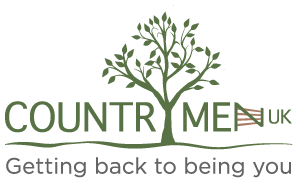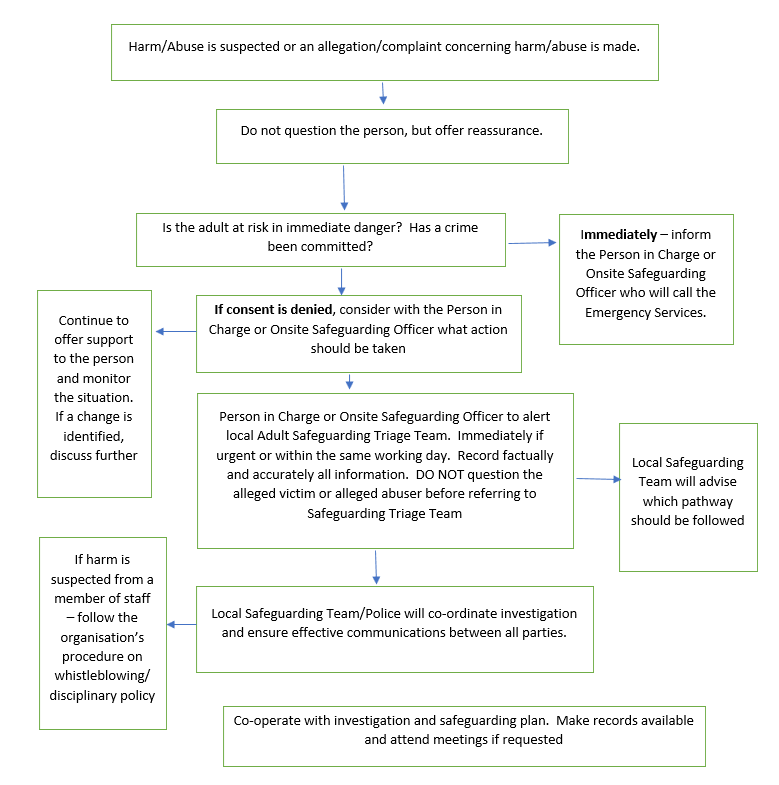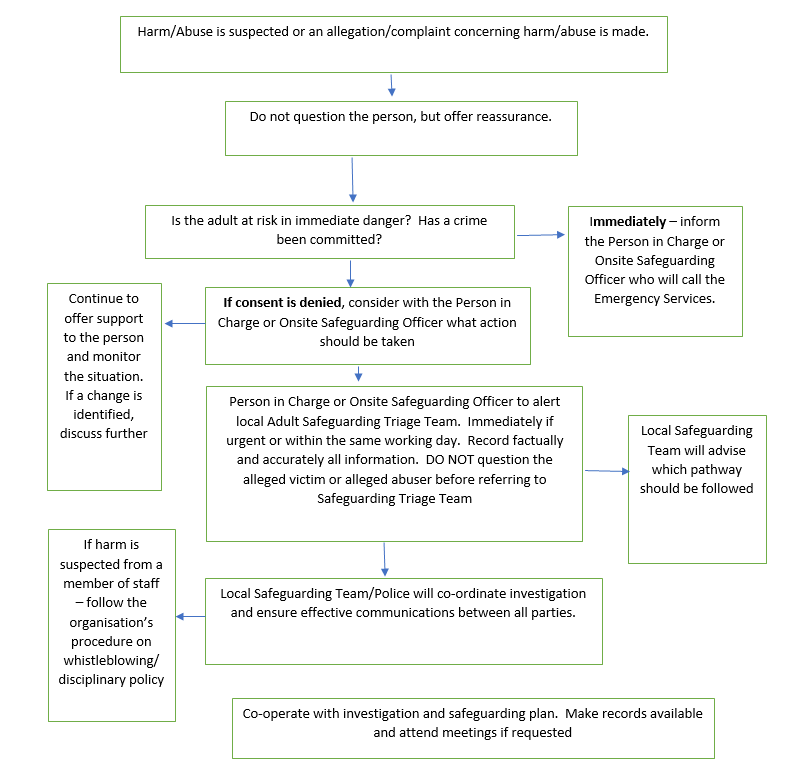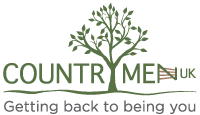
Safeguarding Policy
INTRODUCTION
It is the policy of Countrymen UK, registered at Future Roots, to protect vulnerable adults from any form of abuse, whether it is
Physical abuse
Domestic violence or abuse
Sexual abuse
Psychological or emotional abuse
Financial or material abuse
Modern slavery
Discriminatory abuse
Organisational or institutional abuse
Neglect or acts of omission
Self-neglect
The Board of Directors of Countrymen UK, recognise their duty of care to vulnerable adults.
Policy Statement
- To provide an environment where people feel valued, respected, safe and secure.
- Every participant shall feel supported and represent those with greatest need.
- To recognise vulnerable adults, regardless of age, disability, gender, racial heritage, religious belief, sexual orientation or identity have the right to equal protection from all types of harm or abuse.
- To prevent harm and take action where appropriate.
- To be mindful of the principles of proportion and take the least intrusive response appropriate to the risk.
- To work in partnership with Countrymen, carers, other agencies and government departments responsible for the safeguarding of vulnerable adults.
- To be accountable and transparent in delivering safeguarding.
- To appoint an appropriate person to be responsible for safeguarding of all those associated with this policy.
- To ensure that the procedures relating to safeguarding are robust, fit for purpose, effective and carried out in an appropriate manner.
- To ensure that all staff, volunteers and others who work with, or on behalf of vulnerable adults are competent, confident and safe to do so.
- To recruit staff and volunteers using the Safer Recruitment guidelines.
- To ensure that all staff and, where appropriate, volunteers, participate in regular safeguarding training (at least every 3 years, or when there are changes in the law, policy or procedures)
- To review policy and procedures annually or as deemed necessary with regard to changes in the law, recommendations or government guidance.
- To ensure that all those who work for or represent Countrymen UK activities are aware of the underpinning principles of: Safeguarding Adults: National Framework of Standards for good practice and outcomes in Adult Protection 2005: Data Protection Act 1998: Human Rights Act 1998: Mental Capacity Act 2005 and Code of Practice.
Procedures
Countrymen UK is committed to ensuring effective, careful and a quick response to any concerns about abuse or neglect of vulnerable adults. To this end these procedures will be strictly adhered to at all times.
Staff
- With regard to the Safer Recruitment guidelines, references will be taken up; a Disclosure and Barring Service (DBS) check will be carried out; and verification of previous work history.
- Have regard for the ‘Rehabilitation of Offenders Act’ , making applicants aware that positions are exempt from this act.
- Have a probationary period of 6 months for new employees.
- All staff are made aware of the named person responsible for safeguarding at Countrymen UK : this person is Liz Rose and deputised by Lottie Woodcock (Trustee)
- All staff will be inducted into the Countrymen UK safeguarding procedures. They should know how to react following disclosure, including reporting methods.
- Team meetings will regularly include safeguarding updates and training.
- Formal safeguarding training with be carried out every 3 years.
- Supervision will include discussion about low level safeguarding concerns.
- Provide adequate and appropriate staffing resources to meet the needs of vulnerable adults.
- Seek advice from the local Safeguarding Adults Board if needed.
Volunteers and visitors
- Visitors to all Countrymen UK sites will be asked for identification before being admitted if they are not known to staff.
- All visitors must be recorded in the ‘Visitors’ book and not left alone with vulnerable adults.
- All volunteers will have DBS checks and will not be left in a supervisory role.
- All volunteers will be expected to abide by the principles and procedures of this policy and refer any concerns they may have to the appropriate member of staff responsible for safeguarding.
Responding to the signs or suspicions of abuse
Recognising abuse is not easy, and it is not Countrymen UK staff or volunteers job to decide whether or not abuse has taken place or if a person is at significant risk. This is the role of the statutory services. We do, however, have a responsibility to act if there are concerns about a person’s safety or welfare.
It is important that the person responding to this concern recognises the response for vulnerable adults.
The definition of an adult at risk:
An adult aged 18 years or older who is or may be in need of community care services by reason of mental or other disability, age or illness; and who is or may be unable to take care of him or herself, or unable to protect him or herself from a significant harm or exploitation.
A vulnerable adult at risk may therefore be a person who:
- Is frail due to age, ill health, physical disability or cognitive impairment.
- Has a learning disability.
- Has a physical disability and/or sensory impairment.
- Has mental health needs including dementia or a personality disorder.
- Has a long-term illness/condition.
There are two main actors which determine vulnerability in adults:
Personal | Social |
· Not having the mental capacity to make their own decisions about their own safety including fluctuating mental capacity associated with mental illness or age. · Communication difficulties. · Physical dependency – being dependent on others for personal care and activities of daily life. · Low self-esteem. · Experience of harm. · Experience of childhood abuse.
| · Being cared for in a setting that is more or less dependent on others. · Not getting the right amount of kind of care needed. · Isolation and social exclusion. · Stigma and discrimination. · Lack of access to information and support. · Focus of anti-social behaviour. · Victim of domestic violence or abuse.
|
Recommended procedures for responding to a vulnerable adult disclosing abuse
DO | DON’T |
· Stay calm. · Record the facts and what the person tells you in their own words. · Deal with the immediate needs. · Act to protect the person from risk. · At the earliest opportunity state that you may have to share this information with others. · Consider the mental capacity of the individual. · Consider at all times the wishes of the adult at risk. · Consider the person’s ability to protect themselves and their ability to minimise and manage the risk. · Consider the advantages or disadvantages to them. · Refer all the information to – Julie Plumley – or in her absence the Site/Duty Manager
| · Make promises you cannot keep. · Take notes without agreement from the individual concerned. · If the individual is deemed to be of sound mental capacity do not share this information without agreement. · Ask for more details. · Ask leading questions. · Cast doubt on what has been told to you. · Fail to act immediately. · Call any carer, partner or other person with responsibility for the care of the individual without their agreement. |
All safeguarding concerns, incidents and referrals shall be recorded in writing by Liz Rose or, in her absence, Julie Plumley. This record must be completed in all situations and kept secure.
This policy will be reviewed annually, or as and when there are any changes in the law, procedures or processes within the organisation.
Signed  Name : Julie Plumley Date 23rd September 2024
Name : Julie Plumley Date 23rd September 2024
INTRODUCTION
It is the policy of Countrymen UK, registered at Future Roots, to protect vulnerable adults from any form of abuse, whether it is
Physical abuse
Domestic violence or abuse
Sexual abuse
Psychological or emotional abuse
Financial or material abuse
Modern slavery
Discriminatory abuse
Organisational or institutional abuse
Neglect or acts of omission
Self-neglect
The Board of Directors of Countrymen UK, recognise their duty of care to vulnerable adults.
Policy Statement
- To provide an environment where people feel valued, respected, safe and secure.
- Every participant shall feel supported and represent those with greatest need.
- To recognise vulnerable adults, regardless of age, disability, gender, racial heritage, religious belief, sexual orientation or identity have the right to equal protection from all types of harm or abuse.
- To prevent harm and take action where appropriate.
- To be mindful of the principles of proportion and take the least intrusive response appropriate to the risk.
- To work in partnership with Countrymen, carers, other agencies and government departments responsible for the safeguarding of vulnerable adults.
- To be accountable and transparent in delivering safeguarding.
- To appoint an appropriate person to be responsible for safeguarding of all those associated with this policy.
- To ensure that the procedures relating to safeguarding are robust, fit for purpose, effective and carried out in an appropriate manner.
- To ensure that all staff, volunteers and others who work with, or on behalf of vulnerable adults are competent, confident and safe to do so.
- To recruit staff and volunteers using the Safer Recruitment guidelines.
- To ensure that all staff and, where appropriate, volunteers, participate in regular safeguarding training (at least every 3 years, or when there are changes in the law, policy or procedures)
- To review policy and procedures annually or as deemed necessary with regard to changes in the law, recommendations or government guidance.
- To ensure that all those who work for or represent Countrymen UK activities are aware of the underpinning principles of: Safeguarding Adults: National Framework of Standards for good practice and outcomes in Adult Protection 2005: Data Protection Act 1998: Human Rights Act 1998: Mental Capacity Act 2005 and Code of Practice.
Procedures
Countrymen UK is committed to ensuring effective, careful and a quick response to any concerns about abuse or neglect of vulnerable adults. To this end these procedures will be strictly adhered to at all times.
Staff
- With regard to the Safer Recruitment guidelines, references will be taken up; a Disclosure and Barring Service (DBS) check will be carried out; and verification of previous work history.
- Have regard for the ‘Rehabilitation of Offenders Act’ , making applicants aware that positions are exempt from this act.
- Have a probationary period of 6 months for new employees.
- All staff are made aware of the named person responsible for safeguarding at Countrymen UK : this person is Julie Plumley and deputised by Liz Rose (Trustee)
- All staff will be inducted into the Countrymen UK safeguarding procedures. They should know how to react following disclosure, including reporting methods.
- Team meetings will regularly include safeguarding updates and training.
- Formal safeguarding training with be carried out every 3 years.
- Supervision will include discussion about low level safeguarding concerns.
- Provide adequate and appropriate staffing resources to meet the needs of vulnerable adults.
- Seek advice from the local Safeguarding Adults Board if needed.
Volunteers and visitors
- Visitors to all Countrymen UK sites will be asked for identification before being admitted if they are not known to staff.
- All visitors must be recorded in the ‘Visitors’ book and not left alone with vulnerable adults.
- All volunteers will have DBS checks and will not be left in a supervisory role.
- All volunteers will be expected to abide by the principles and procedures of this policy and refer any concerns they may have to the appropriate member of staff responsible for safeguarding.
Responding to the signs or suspicions of abuse
Recognising abuse is not easy, and it is not Countrymen UK staff or volunteers job to decide whether or not abuse has taken place or if a person is at significant risk. This is the role of the statutory services. We do, however, have a responsibility to act if there are concerns about a person’s safety or welfare.
It is important that the person responding to this concern recognises the response for vulnerable adults.
The definition of an adult at risk:
An adult aged 18 years or older who is or may be in need of community care services by reason of mental or other disability, age or illness; and who is or may be unable to take care of him or herself, or unable to protect him or herself from a significant harm or exploitation.
A vulnerable adult at risk may therefore be a person who:
- Is frail due to age, ill health, physical disability or cognitive impairment.
- Has a learning disability.
- Has a physical disability and/or sensory impairment.
- Has mental health needs including dementia or a personality disorder.
- Has a long-term illness/condition.
There are two main actors which determine vulnerability in adults:
Personal | Social |
· Not having the mental capacity to make their own decisions about their own safety including fluctuating mental capacity associated with mental illness or age. · Communication difficulties. · Physical dependency – being dependent on others for personal care and activities of daily life. · Low self-esteem. · Experience of harm. · Experience of childhood abuse.
| · Being cared for in a setting that is more or less dependent on others. · Not getting the right amount of kind of care needed. · Isolation and social exclusion. · Stigma and discrimination. · Lack of access to information and support. · Focus of anti-social behaviour. · Victim of domestic violence or abuse.
|
Recommended procedures for responding to a vulnerable adult disclosing abuse
DO | DON’T |
· Stay calm. · Record the facts and what the person tells you in their own words. · Deal with the immediate needs. · Act to protect the person from risk. · At the earliest opportunity state that you may have to share this information with others. · Consider the mental capacity of the individual. · Consider at all times the wishes of the adult at risk. · Consider the person’s ability to protect themselves and their ability to minimise and manage the risk. · Consider the advantages or disadvantages to them. · Refer all the information to – Julie Plumley – or in her absence the Site/Duty Manager
| · Make promises you cannot keep. · Take notes without agreement from the individual concerned. · If the individual is deemed to be of sound mental capacity do not share this information without agreement. · Ask for more details. · Ask leading questions. · Cast doubt on what has been told to you. · Fail to act immediately. · Call any carer, partner or other person with responsibility for the care of the individual without their agreement. |
All safeguarding concerns, incidents and referrals shall be recorded in writing by Julie Plumley or, in her absence, the Trustee Liz rose. This record must be completed in all situations and kept secure.
This policy will be reviewed annually, or as and when there are any changes in the law, procedures or processes within the organisation.

Actions to be taken in relation to issues of safeguarding vulnerable adults


Contact numbers to report a concern:
Adults: [email protected] Telephone – 01305 221016
